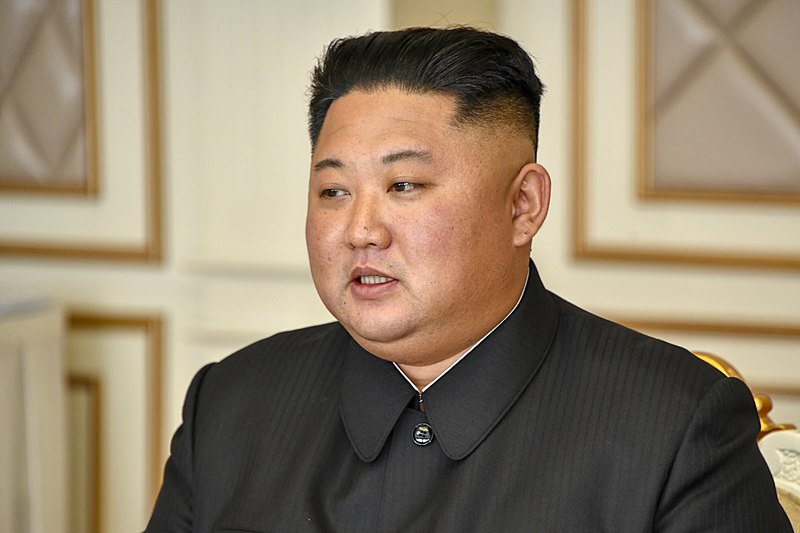Continuing its string of weapons tests this year, North Korea has carried out another weapons test this week. The latest test follows the recent summit by the Quad regional grouping in Japan.
In a report by Reuters, Pyongyang fired three missiles Wednesday, one of which was believed to be an intercontinental ballistic missile or ICBM.
The launch followed the visit of US President Joe Biden, who made his first trip to the continent as the US leader and attended an in-person summit with his counterparts in the Quad regional grouping that is made up of Japan, Australia, India, and the US. At the time, Biden agreed to measures that could deter North Korea’s nuclear capabilities.
South Korean deputy national security adviser Kim Tae-hyo said North Korea also appeared to conduct several experiments with a detonation device to prepare for its seventh nuclear weapon test. However, the test was unlikely going to take place in the coming days.
As a response to Pyongyang’s launches, Seoul and Washington carried out live-fire drills, which included surface-to-surface missile tests that involve the US Army Tactical Missile System and South Korea’s Hyunmoo-2 SRBM.
Other military shows of force were made by the US and South Korea in response, including fighter jets flying overhead at an “elephant walk” formation.
This appeared to highlight the hardline stance that Conservative South Korean President Yoon Suk-yeol is expected to take toward the neighboring nation.
“Our military’s show of force was intended to highlight our resolve to firmly respond to any North Korean provocations including an ICBM launch, and our overwhelming capability and readiness to conduct a surgical strike on the origin of the provocation,” South Korea’s Joint Chiefs of Staff said in a statement.
Seoul and Washington also agreed over the weekend to ramp up measures that could deter Pyongyang while expanding cooperation over other issues such as cybersecurity, nuclear energy, regional security, and supply chains among others.
Yoon and Biden issued a joint statement pledging to expand the alliance to address issues beyond North Korea while still remaining open to discussions with Pyongyang.
“Both leaders agree to expand the scope and scale of combined military exercises and training on and around the Korean peninsula,” said the statement regarding North Korea, citing the growing threat of Pyongyang in the region.



 India–U.S. Interim Trade Pact Cuts Auto Tariffs but Leaves Tesla Out
India–U.S. Interim Trade Pact Cuts Auto Tariffs but Leaves Tesla Out  Trump Congratulates Japan’s First Female Prime Minister Sanae Takaichi After Historic Election Victory
Trump Congratulates Japan’s First Female Prime Minister Sanae Takaichi After Historic Election Victory  Japan’s Prime Minister Sanae Takaichi Secures Historic Election Win, Shaking Markets and Regional Politics
Japan’s Prime Minister Sanae Takaichi Secures Historic Election Win, Shaking Markets and Regional Politics  Bangladesh Election 2026: A Turning Point After Years of Political Suppression
Bangladesh Election 2026: A Turning Point After Years of Political Suppression  Trump Lifts 25% Tariff on Indian Goods in Strategic U.S.–India Trade and Energy Deal
Trump Lifts 25% Tariff on Indian Goods in Strategic U.S.–India Trade and Energy Deal  Bosnian Serb Presidential Rerun Confirms Victory for Dodik Ally Amid Allegations of Irregularities
Bosnian Serb Presidential Rerun Confirms Victory for Dodik Ally Amid Allegations of Irregularities  Netanyahu to Meet Trump in Washington as Iran Nuclear Talks Intensify
Netanyahu to Meet Trump in Washington as Iran Nuclear Talks Intensify  Japan Election 2026: Sanae Takaichi Poised for Landslide Win Despite Record Snowfall
Japan Election 2026: Sanae Takaichi Poised for Landslide Win Despite Record Snowfall  Nicaragua Ends Visa-Free Entry for Cubans, Disrupting Key Migration Route to the U.S.
Nicaragua Ends Visa-Free Entry for Cubans, Disrupting Key Migration Route to the U.S.  New York Legalizes Medical Aid in Dying for Terminally Ill Patients
New York Legalizes Medical Aid in Dying for Terminally Ill Patients  Trump Slams Super Bowl Halftime Show Featuring Bad Bunny
Trump Slams Super Bowl Halftime Show Featuring Bad Bunny  Trump Administration Appeals Court Order to Release Hudson Tunnel Project Funding
Trump Administration Appeals Court Order to Release Hudson Tunnel Project Funding  Trump Backs Nexstar–Tegna Merger Amid Shifting U.S. Media Landscape
Trump Backs Nexstar–Tegna Merger Amid Shifting U.S. Media Landscape  Antonio José Seguro Poised for Landslide Win in Portugal Presidential Runoff
Antonio José Seguro Poised for Landslide Win in Portugal Presidential Runoff  U.S. Lawmakers to Review Unredacted Jeffrey Epstein DOJ Files Starting Monday
U.S. Lawmakers to Review Unredacted Jeffrey Epstein DOJ Files Starting Monday  US Pushes Ukraine-Russia Peace Talks Before Summer Amid Escalating Attacks
US Pushes Ukraine-Russia Peace Talks Before Summer Amid Escalating Attacks  Ghislaine Maxwell to Invoke Fifth Amendment at House Oversight Committee Deposition
Ghislaine Maxwell to Invoke Fifth Amendment at House Oversight Committee Deposition 































